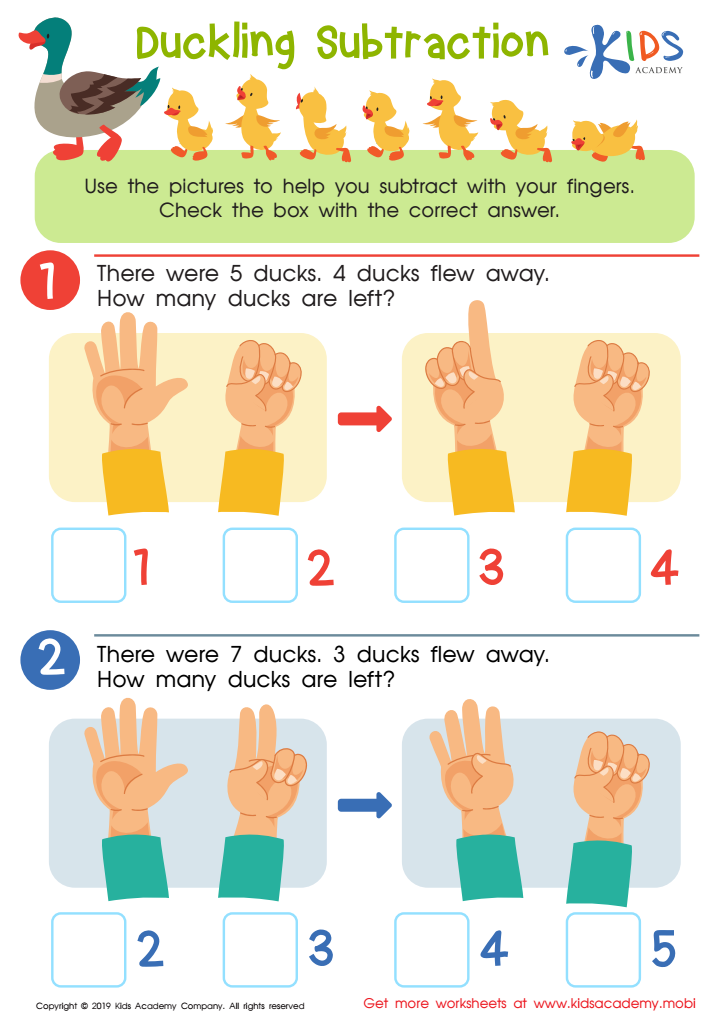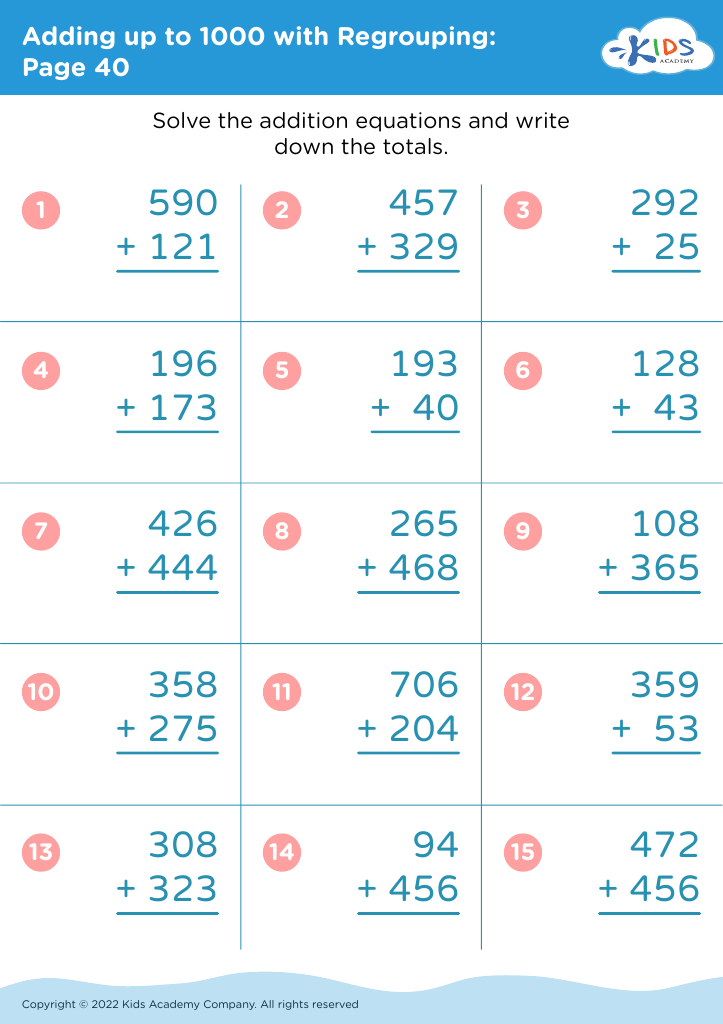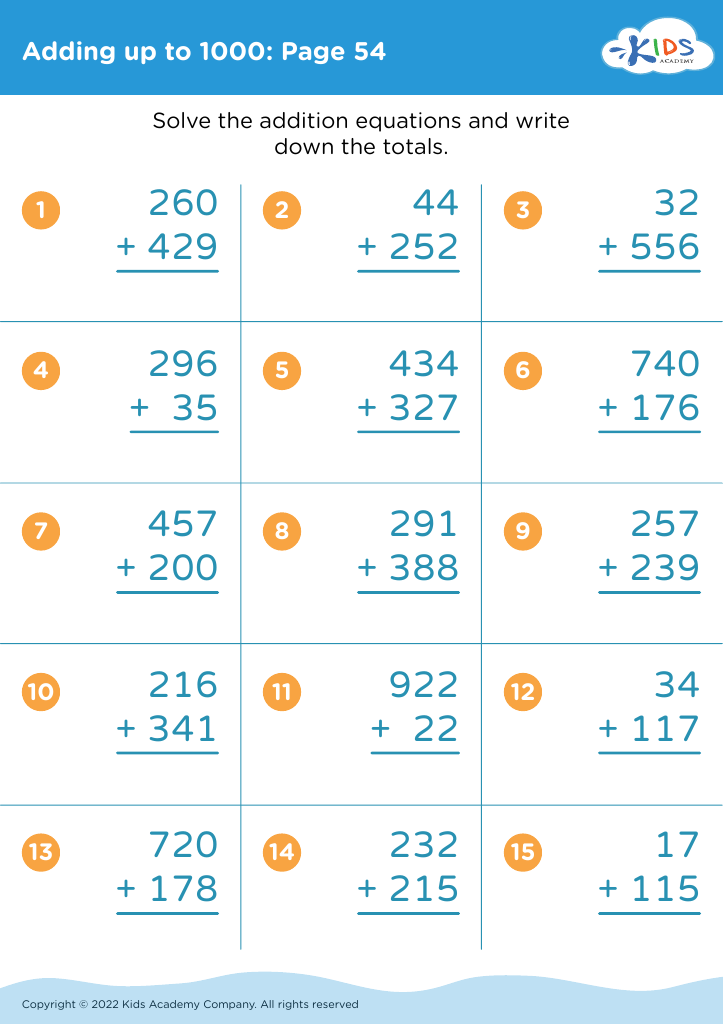Understand number relationships Math Worksheets for 9-Year-Olds
3 filtered results
-
From - To
Unlock your child's mathematical potential with our "Understand Number Relationships" Math Worksheets tailored for 9-year-olds. Our expertly designed resources focus on enhancing students' understanding of number patterns, comparisons, and sequences. By engaging in these educational activities, children build a solid foundation in essential math concepts, boosting their confidence and skills. Perfect for classroom learning or extra practice at home, these worksheets make math both fun and effective. Give your child the tools they need to excel in math with Kids Academy's comprehensive worksheets. Start their journey to mathematical mastery today!


Duckling Subtraction Worksheet
Understanding number relationships is crucial for 9-year-olds because it lays the groundwork for more complex mathematical thinking and problem-solving skills vital for their future academic success. At this age, children transition from basic arithmetic to more advanced concepts such as fractions, multiplication, and division. Comprehending number relationships helps them visualize and manipulate numbers, making these more complex tasks easier to grasp.
For parents, fostering this understanding helps children build confidence in their math abilities, promoting a positive attitude towards learning and reducing math anxiety. When a child can see the connection between numbers—like recognizing that 5+4 is related to 9-4 or understanding how multiplication is repeated addition—they are better equipped to approach new problems with logic and creativity.
Teachers likewise benefit from focusing on number relationships as it enhances differentiated learning in the classroom. With a strong foundation, students are more likely to keep pace and comprehend new material, leading to more dynamic and engaging lessons.
Overall, developing a keen understanding of number relationships supports cognitive development, critical to other STEM disciplines, and prepares children for real-world tasks requiring analytical thinking. Parents and teachers mutually play a pivotal role in nurturing these skills, ensuring that young learners grow into proficient and confident problem solvers.


 Assign to My Students
Assign to My Students
















